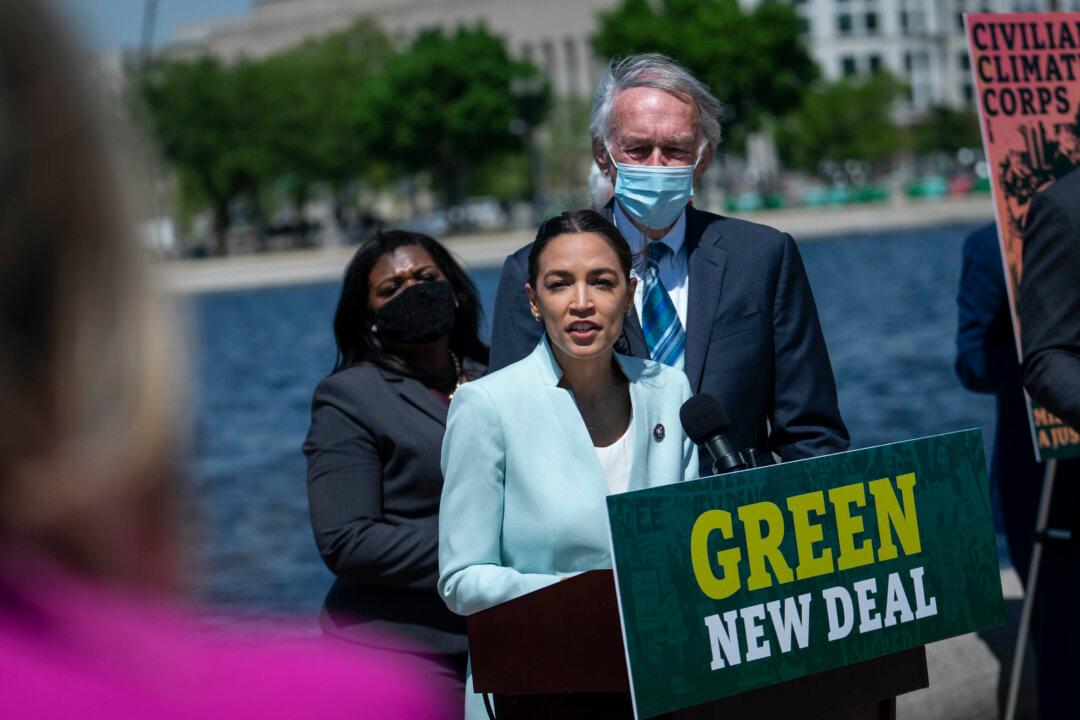Progressive Democrats reintroduced their signature climate change-fighting blueprint, this time in the form of a Senate resolution, with Sen. Ed Markey (D-Mass.) proclaiming in Washington on April 20 that “the Green New Deal isn’t just a resolution, it is a revolution,” while Republicans denounced it as a “socialist super-package.”
First introduced in 2019 in the form of a non-binding House resolution (pdf), the essentially identical Senate version (pdf) of the Green New Deal seeks to eliminate U.S. greenhouse gas emissions within a decade, transition the economy away from fossil fuels, weave climate change imperatives into any infrastructure bill considered by Congress, along with a medley of progressive social justice priorities in areas such as race relations and income disparities.





